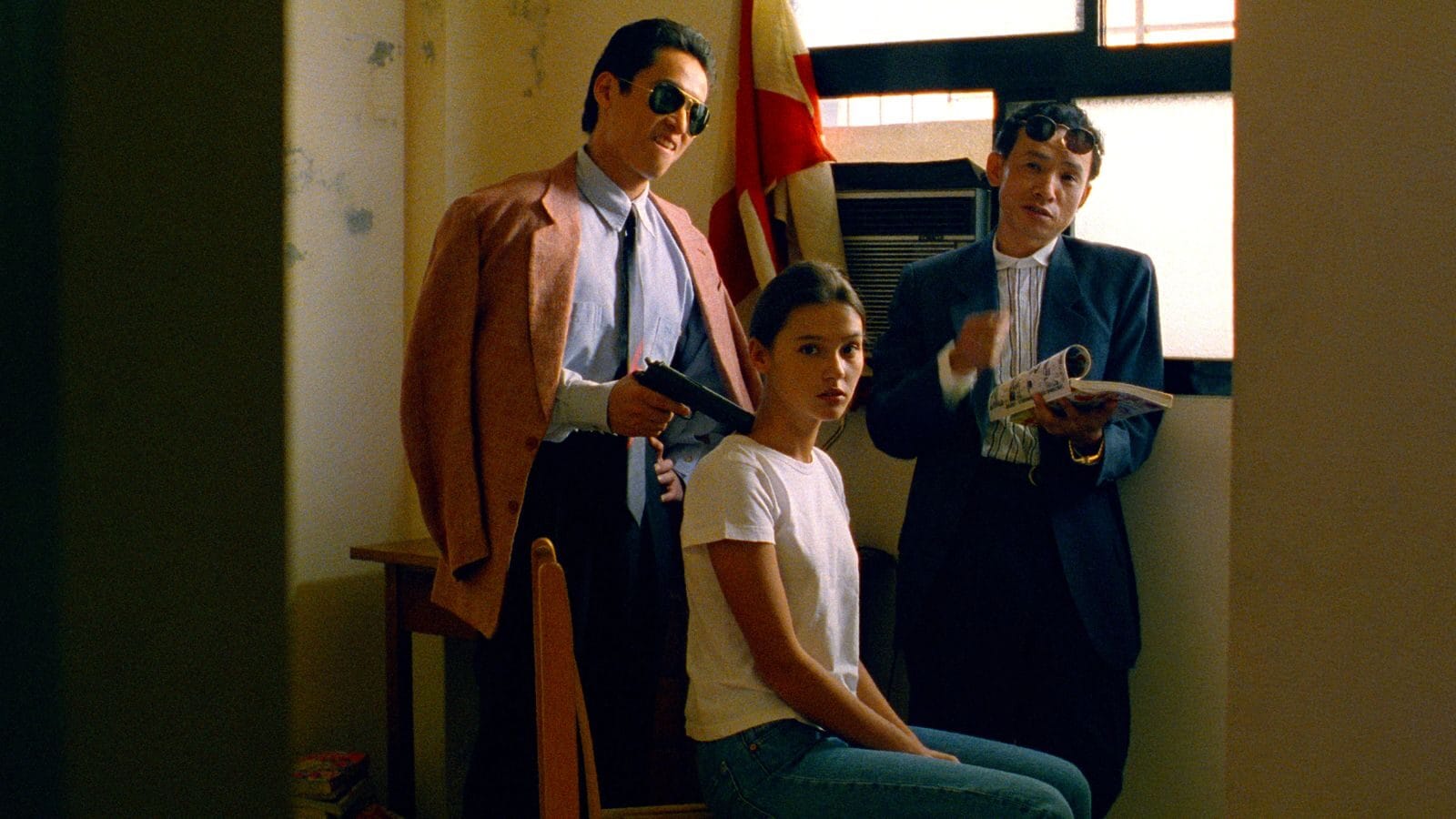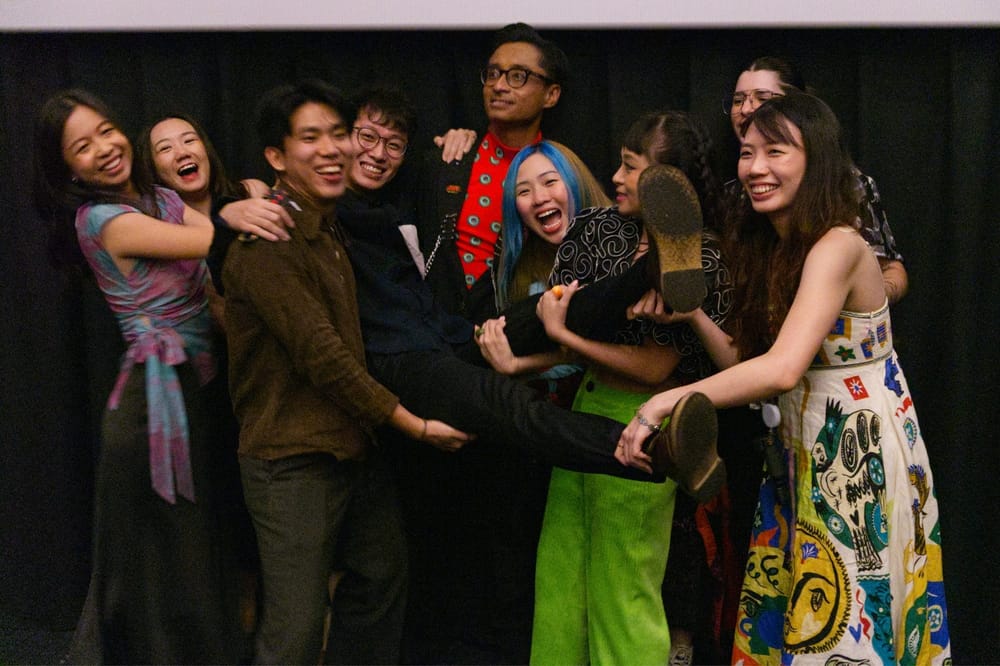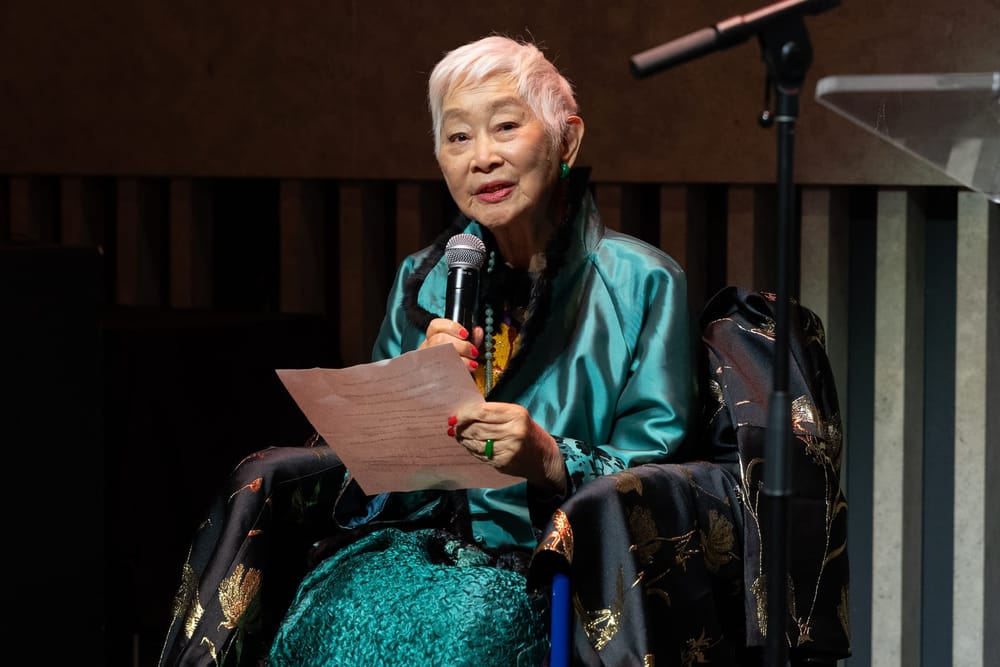In the world of mahjong, four players are required to begin the game, but in the realm of film critique, our two reviews of Edward Yang’s “Mahjong” pack twice the insight and pulp delight. Immerse yourself in the depths of this cinematic gem, as we offer a double dose of perspective on its intricacies.
By Noel Vera
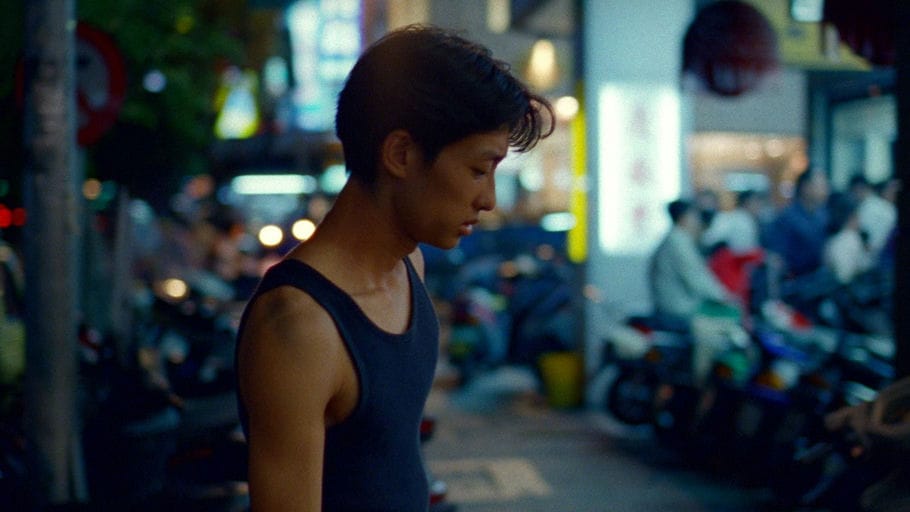
Saw Edward Yang's Mahjong in the 1996 Hong Kong Film Festival and summed up the experience thusly: "– Chinese youths going nowhere, Quentin Tarantino style. Like Tarantino there's glancing violence, suggested sex, baroquely twisted plot turns, sharp dialogue, aggressive posturing. Like Tarantino, there's not much else underneath." Despite the pulp elements, I dismissed the deliberately paced film (and several others in the festival) as yet another example of 'The Cinema of the Comatose.' Big difference nearly a quarter of a century can make; on rewatch (a fuzzy copy streaming on YouTube, with near-indecipherable subtitles) "Mahjong" was sadder, sharper, far funnier than I remember, perhaps Yang's most immediately appealing work.
Tarantino is definitely an influence. Yang's film introduces a handful of narratives involving over half a dozen characters, most in a series of lengthy tracking shots during the film's opening nightclub scene: baseball-capped Red Fish (Tang Tsung-sheng) hustles shaven-pate Little Buddha (Wang Chi-tsan) as an overacting feng shui master to various wealthy prospects; Alison (Ivy Chen) salivates over Red Fish's friend Hong Kong's (Chang Chen) smooth-muscled body; Marthe (Virginie Ledoyen in an early role) has tracked down Alison's interior designer boyfriend Markus (Nick Erickson) from London to Taipei and walks up to his table, demanding to know if he still loves her; Angela drifts through it all unaware of Red Fish’s elaborate revenge plot for what she did to his father years before.
And there's talk, plenty of talk, much of it tough, much of it from Red Fish who chases the classic Taiwanese dream of the fast buck. "You really are fucking emotional," he advises fellow gangster Luen-Luen (Lawrence Ko). "You want to be rich, use your head. Without emotion." In a lengthy four-minute scene Red Fish, Hong Kong, Little Buddha, and Luen-Luen circle Alison trying to persuade her that friends share everything, and that Hong Kong's girlfriend is everyone's girlfriend. "It says 'thanks for being a good friend,'” Red Fish explains. The scene is horrifying and funny in a way you don't really find in a Tarantino flick. For all his so-called provocations, he soft-pedals sexuality beyond his trademark foot fetish, and even that is just mildly indulged.
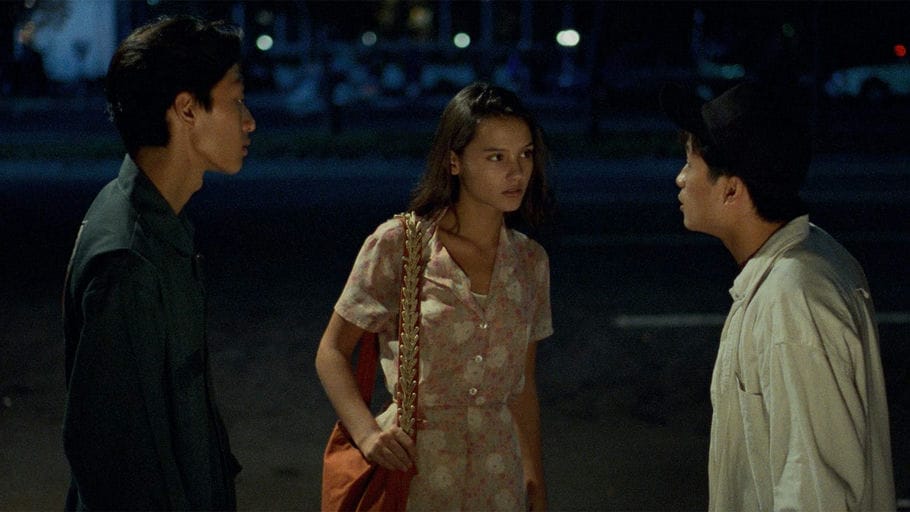
Same time everyone's fronting and trying to climb that proverbial ladder of success, everyone has a hidden Achilles' heel and – unspoken corollary – the louder the talk, the bigger that hidden heel. Take the aforementioned Red Fish, whose father, Winston Chen (Chang Kuo-chu), has gone into hiding after stealing $100 million from the Taipei underworld ("There's no better cheat in all of Taiwan!" son proudly declares). When Red Fish finally finds senior Chen the old man is tucked away in a corner of his modestly appointed apartment, sunk into a nest of cushions. The image tickled my subconscious, bothered me till I got it: the passive posture recalls the heavily symbolic Ole Swede in Hemingway's short 'The Killers' – the way he lay in his Procrustean bed unmoving, resigned to his fate.
Yang understands young punk filmmaking; he slings around cool '90s movie tropes like the best of them can, and Tarantino often does, but unlike the latter doesn't forget to fill his outlines with an interior life. Red Fish may talk big but there's a yawning vulnerability in him when it comes to his father. "I won't spend money on women like you!" Red Fish yells at elder Chen, referring presumably to Angela; to be fair Red makes good on his promise but everything else -- especially that bit about not having emotions -- comes back unbidden to bite him in the ass.
I'm aware this is considered the lesser of Yang's films, critics citing the awkwardness of Ledoyen and Erickson as Marthe and Markus, but beyond the stilted dialogue (excusable in Ledoyen who's French but Erickson?) theirs is a fascinatingly unstable power dynamic, shifting from man trying to deal with unwanted woman to lover with nothing left to lose – like Tarantino, Yang's male characters strike macho poses while his female characters are granted agency; unlike Tarantino his female characters' agency feels more baked-in than opportunistic, more an integral part of his rounded view of people than a chance to score politically correct brownie points. And despite all his posturing Yang does allow Markus a parting measure of sympathy, a high-angled long shot of him standing next to his car, looking lost.
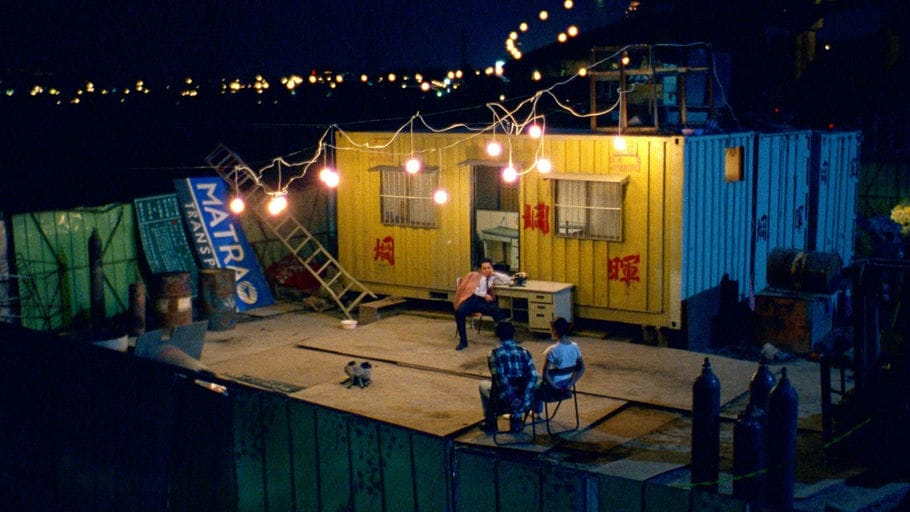
Then there's the case of Angela, who brings Hong Kong home to her empty apartment like freshly ordered takeaway – steaming meat for her and her besties to sample and pass around, a parallel to the earlier scene between Alison and Red Fish's friends, only the conclusion is deserved. Yes, Yang flirts with misogyny but instead of leaving it on brash display, it’s held up for cold cruel ridicule. The film concludes the way many cool ’90s films conclude, with an act of violence. The difference here is we fully understand where that’s coming from, a red-hot coal searing the insides so the tormented has no choice but to lash out, to inflict pain not quite commensurate with what he's suffering; more shocking than anything committed onscreen is the uncomfortable unwelcome fact that we know how he feels. One of the best of the ’90s, I submit, and the most underrated of Yang's films.
A Biting Comedy of Errors Amid Taipei's Changing Landscape
By Simone Britto
"Mahjong," the penultimate film by Taiwanese auteur Edward Yang, is a surprisingly biting comedy of errors. When a millionaire who owes money to the wrong people goes into hiding, his son Red Fish (Tsung Sheng Tang) finds himself in the crosshairs. Undaunted, or simply unaware, Red Fish and his crew pursue sex and money around Taipei, running into Marte (Virginie Ledoyen), a naive Frenchwoman on a mission of vengeance who finds herself ensnared in the gang’s schemes.
While lesser known than Yang’s swan song "Yi Yi" (2000), "Mahjong" is an incisive late-career work which showcases his comedic range. The film’s unlikely ensemble intermingles at a Hard Rock Cafe, the epicenter of trendy nightlife in 1996 Taipei. Yang’s loving yet critical vision of the city features people from all walks of life striving for more: a crooked millionaire, his seedy son, bumbling mob enforcers, escorts, ambitious young locals, and expats who could not find success anywhere else. The foreigners provide an ironic outsider's perspective on the harsh realities of the city.
Crime may not pay but within this dark comedy, a rewarding love story unfolds. Yang’s sensitive portrayal of interpersonal relationships amid this grim morality tale reveals an intimate portrait of a rapidly changing city at the turn of the millennium.
A 4K restoration of "Mahjong" premiered at Lincoln Center’s retrospective Desire/Expectations: The Films of Edward Yang.


